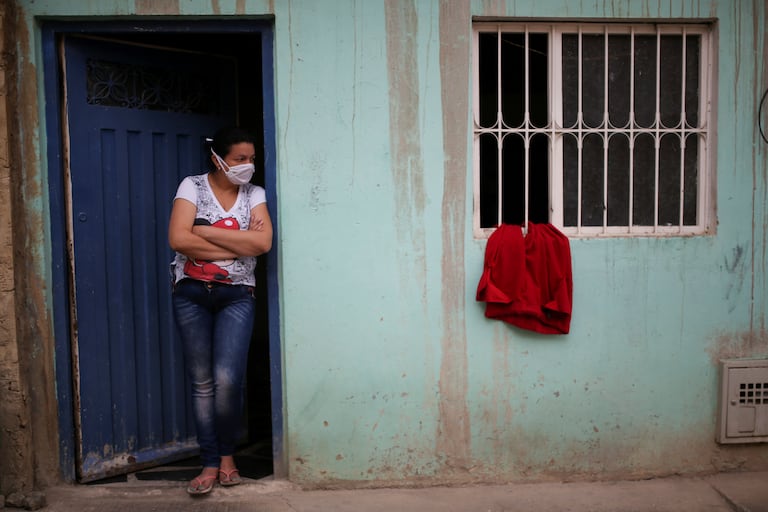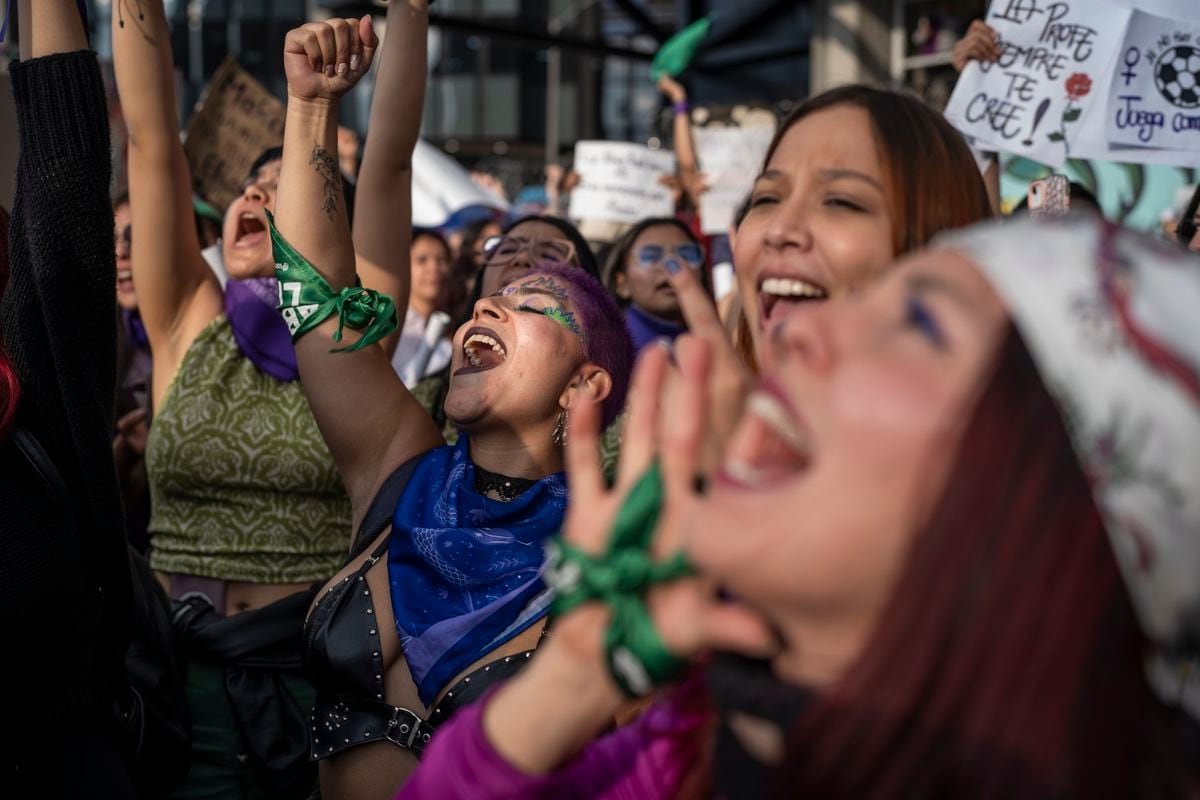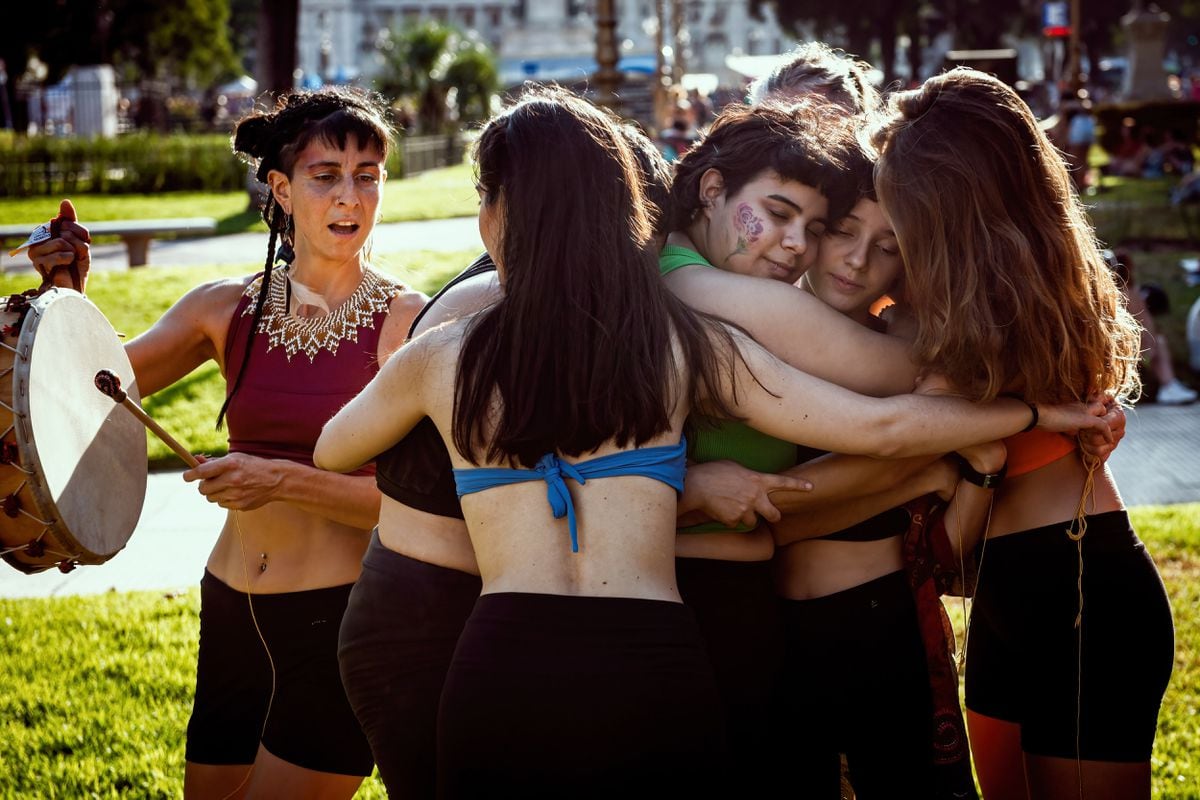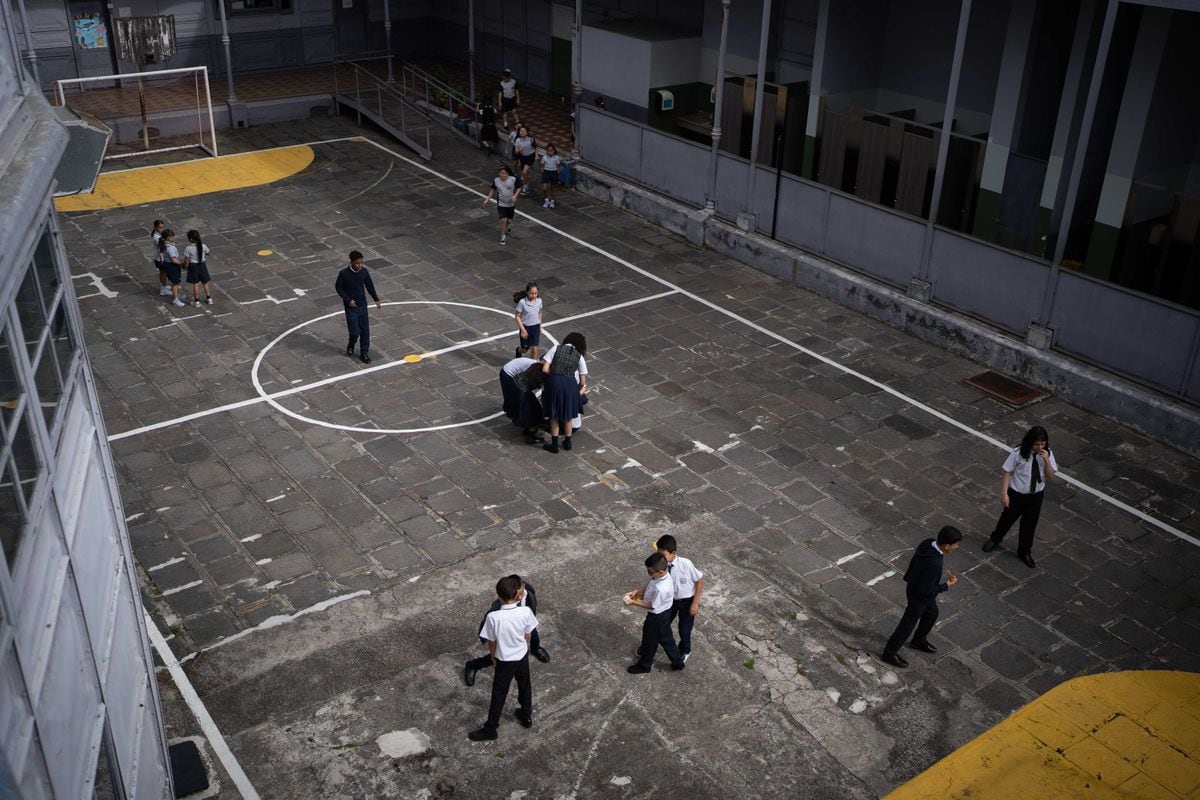A woman awaits the arrival of social benefits in Bogotá, on April 20, 2020.LUISA GONZALEZ / Reuters
The covid-19 pandemic has further deepened the already huge structural gaps in Latin America and the Caribbean.
At a time of "high uncertainty, in which neither the form nor the speed of the way out of the crisis have yet been delineated," the Economic Commission for Latin America and the Caribbean (ECLAC) calculates that extreme poverty, the The most excruciating shortage in which the most basic needs are not covered, it will have escalated to its highest level since 2000. 12.5%, one out of every eight Latin Americans, is now in that situation;
more than one percentage point more than a year ago, when a health crisis was a remote option, and almost five points more than in 2014, when it reached the lowest point ever, in 7.8% of the population.
Before covid-19, the percentage of people in this situation had already been growing for five years, but the virus has been the final touchstone to this worrying trend.
The emergency social protection measures that have been adopted in practically the entire region have contributed to alleviate the severe blow of the coronavirus on the always volatile economic and social networks of Latin America.
But it has not prevented an equally notable increase in the case of moderate poverty, which affected one in every three inhabitants of the block at the end of 2020 - 33.7% -, more than three percentage points than a year earlier.
We must go back to 2006, at the equator of the super-cycle of raw materials that allowed governments to deploy an unprecedented battery of social measures thanks to which millions of people were able to drastically improve their quality of life and broaden the class base half.
Latin America and the Caribbean is one of the regions hardest hit by the coronavirus, both in number of cases and in deaths.
With just over 8% of the world's population, until December of last year it accumulated almost one in five infections and, attention, more than one in four deaths globally.
Some "tremendous" figures, in the words of the agency's executive secretary, Alicia Bárcena.
The size of the human claw has led to an unprecedented crisis both economically and socially, which in the region is aggravated by historical burdens such as inequality - still the most unequal in the world -, labor informality - an indicator in which it is also is a global leader—, social vulnerability and vulnerability.
A breeding ground that amplifies any shock and that amplifies its negative effects on the less fortunate layers of society, as highlighted by the Social Panorama 2020 presented this Thursday in Santiago de Chile by the United Nations arm for development in the bloc. .
With a demographic curve still on a positive slope, in absolute terms the numbers are even more shocking.
According to ECLAC figures, the total number of people below the poverty line will be 209 million by the end of 2020, 22 million more than at the end of 2019. Of these, 78 million will be extremely poor, eight million more than a year before.
Eight out of ten Latin Americans today live in a vulnerable situation, with incomes equivalent to three or less than three times the minimum wage.
All these trends are exacerbated in rural areas and in those with the highest prevalence of indigenous populations.
Goodbye to the social elevator
Most Latin American countries will experience a powerful distributional deterioration, an always sensitive flank in the region: those who have suffered the most, are suffering and will suffer the ravages of the pandemic will be those who started from a worse situation.
The loss of jobs and the reduction in labor income will be greater in the low-income strata, while the middle-income strata will suffer the dreaded process of downward mobility: returning to the starting point is never as fast as being displaced from it .
The report has an explanation for this phenomenon: in Latin America and the Caribbean, families from the middle strata and from the upper part of the lower strata are usually not recipients of social protection policies and programs and the majority of their income It comes from work, one of the hardest hit flanks.
ECLAC estimates that between 2019 and 2020 the low-income strata would have increased 4.5 percentage points (about 28 million more people) and the middle-income strata would have contracted by a similar proportion (-4.1 percentage points, that is, say, 25 million fewer people).
"The region had already had low growth for seven years," Bárcena recalled a year after the zero coronavirus patient was identified in the region.
“We need public policies to face this emergency and connect it with a recovery that is different: we do not want to get to where we were, but to transform our reality.
And that is only done with public policies ”.
The urgency of moving towards a true welfare state, he remarked, is today "greater than ever."
According to their data, a third of households with children or adolescents lack any type of social protection.
And almost one in three women - especially in the poorest sections of the population - does not participate in the job market to take care of their family, chronicling and widening the differences of departure.
In addition to predicting that total income inequality per person will increase with the pandemic, ECLAC warns that the virus threatens to deepen the malaise that had become visible in different countries in the region before the health crisis.
“Address the factors that cause discomfort, moving towards social policies focused on the enjoyment of rights, equality, recognition and dignified treatment, together with the construction of social pacts aimed at building more just, inclusive and cohesive societies, it is essential to avoid increasing levels of conflict, expressions of violence and a crisis of representation and democratic legitimacy that hinder economic performance, ”the ECLAC technicians underline.


/cloudfront-eu-central-1.images.arcpublishing.com/prisa/NYBERFPPHVEJVER4FIRIEAGGX4.jpg)



/cloudfront-eu-central-1.images.arcpublishing.com/prisa/2VA2ALVO6BDXLM22W73UWN5GDY.jpg)


